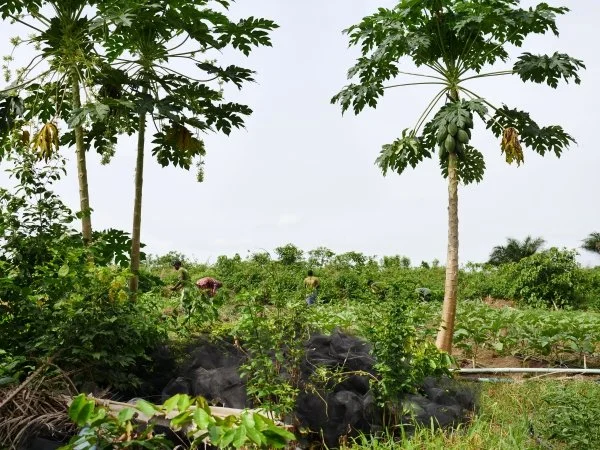Nigerian farmers, just like every other worker in the country, are confronted with so many challenges that, most times, dwindle agricultural production.
Climatic change is a significant threat to farmers and food security. Agriculture is heavily susceptible to climatic conditions. The success of agriculture in any environment is heavily dependent on climate change.
In Nigeria, crops like millet, cowpea, sorghum, groundnut, and sesame grow more in the northern part of the country than the southern part, and this is predominantly because of their weather and climate change. Some crops also survive better in the southern and eastern regions than in other areas.
Climate change refers to the average long-term change over the entire earth. It can also be described as the ongoing increase in global average temperature and its effects on Earth's climate system. The consequences of climate change include flooding, intense drought, water scarcity, catastrophic storms, melting polar ice, severe fires, declining biodiversity, rising sea levels, etc.
A hot, semi-arid climate is predominant within the Sahel in the northern part of Nigeria. The rainy season in Nigeria, which lasts from March to September, is usually anticipated by farmers because, for farming to be possible, water is indispensable. Annual rainfall totals are low in the north. The rainy season in the north lasts for three to four months (June to September). Declining rainfall in the North explains why Northerners experience drought. Drought in Northern Nigeria causes crop failure, livestock death, increased temperature, shortage of water for domestic, industrial, and agricultural purposes, ecosystem modifications, and destabilization of economic activities, among many others. A good balance of rain and proper irrigation can quicken the growth of crops and the time for harvest.
The southern region of the country experiences more rainfall events during the rainy season. From June to late August 2022, flooding affected populations in several states, including Lagos, Anambra, Ebonyi, Rivers State, Benue, Delta, and Cross River, destroying more than 110,000 farmlands, killing over 600 people and many livestock, destroying more than 200,000 homes, and displacing over one million people. This unfortunate phenomenon affected farmers whose farmlands, crops, and livestock were completely damaged.
Changes in rainfall and temperature impact agriculture. The frequency and intensity of rain can have a major impact on agricultural growth, affecting the soil, hydrology, and plant health. Extreme weather events associated with climate change may cause sudden reductions in agricultural productivity.
It can disrupt food availability, reduce access to food, and affect food quality. Extreme climatic conditions such as drought, extreme heat, and flooding can lead to degradation, which can reduce crop yields. Excessive rainfall can lead to the loss of crops and livestock.
The effects of climate change on Nigerian farmers can be summarized thus:
Low crop production
In Nigeria, crop production depends on location and climatic conditions. Crops that need rainfall to grow are abundant in the south, while those that don’t need rainfall grow more in the north. Excess rain and drought associated with climate change affect this natural distribution of crops in Nigeria and reduce their production in large quantities to meet the population’s demand.
Climate change, therefore, may cause stunted growth of some crops grown in northern Nigeria because these crops don’t thrive in soils flooded with water from excess rain. Likewise, some crops cultivated in southern Nigeria may wither during prolonged drought periods because they need rainfall to grow.
Food Security
There is an alarming downturn in the quality and quantity of crops produced in Nigeria.
The 2022 flooding has reportedly affected about 34 states, impacted over 2.5 million people, killed over 600 people, and forced over 1.5 million others to leave their homes. More than 200,000 houses have been either partially or fully damaged. Hundreds of thousands of hectares of farms, including crops, were also damaged.
Food scarcity is a consequence of low crop yield, which is characterized by low quality and quantity of food crops because of unfavorable climate conditions. Therefore, food crops are poorly distributed to other geopolitical zones where such crops don’t grow.
For instance, the northerners are the core producers of tomatoes in Nigeria; if there is low production due to unfavorable weather conditions, other parts of Nigeria will be affected, which sometimes leads to hike in the price of the produce.

